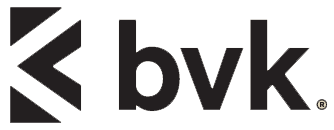Fresh Insights from our Education Team on What’s Influencing Gen Z this School Year
Education

From shopping carts to classroom stress, Gen Z’s back-to-school season is shaped by digital influence, emotional priorities and evolving policy changes. Our Education team analyzed the latest research to uncover how students and parents are making decisions, from the platforms inspiring their purchases to the support they expect from schools. These insights can help brands, nonprofits education professionals create campaigns that align with Gen Z’s values, behaviors and needs in 2025.
We have compiled the latest information on back-to-school trends in this issue of The Current, designed for marketers, strategists and digital leads who want to make the most of peak back-to-school season.
In This Issue of The Current: Back-to-School Buzz: Where Gen Z Gets Inspired Online
Gen Z’s Go-To Platforms for Back-to-School Inspiration
- TikTok, Instagram, and YouTube are Gen Z’s most-used platforms for back-to-school content and brand discovery (VuePlanner, 2025).
- Gen Z frequently relies on influencers for product recommendations, valuing peer voices over traditional advertisements (Google Think, 2025; VuePlanner, 2025).
- Short-form, interactive, and behind-the-scenes content are particularly effective (OakTheory, 2025; eLearning Industry, 2025).
Implication: Brands aiming to reach Gen Z during back-to-school season should prioritize short-form, interactive content on TikTok, Instagram and YouTube, leveraging influencer partnerships over traditional ads. Peer-driven recommendations and behind-the-scenes storytelling resonate more with this audience than polished messaging.
Back-to-School Spending Trends Among Gen Z Parents and Students
- 75% of Gen Z parents expect to use social media for their back-to-school shopping journeys (Deloitte, July 2025).
- 27% of Gen Z parents prefer in-store only; online and omnichannel experiences continue to grow (PwC, June 2025).
- 92% of K–12 parents say coupons and loyalty programs influence where they shop; 31% are willing to take on debt to meet supply demands (Inmar Intelligence/Mintel, 2025).
- 62% of parents say their child influences them to spend more (Deloitte, 2025).
- College-aged Gen Z shops later in the season, making 61% of purchases independently (Mintel, 2025).
- Gen Z chooses eco-friendly and socially responsible brands (VuePlanner, 2025).
Implication: Back-to-school promotions that combine social media reach with compelling coupons and loyalty rewards can significantly sway Gen Z parents’ store choice – even to the point of driving them to spend beyond their budgets. Highlighting value while pairing it with eco-friendly and socially responsible positioning can win both parents and students, especially when timed to late-season buying patterns.
Education Marketing Trends Targeting Gen Z
- 81% of Gen Z students appreciate personalized ads (eLearning Industry, 2025).
- Brands and schools use AI, dynamic creative, and audience-based targeting (VuePlanner, 2025; Outfront Media, 2025).
- Gamified and interactive content is effective, particularly with younger Gen Z and Gen Alpha (VuePlanner, 2025).
Implication: Education marketers should prioritize AI-powered personalization, dynamic creative and gamified experiences to capture Gen Z’s attention. Younger segments, including Gen Alpha, respond especially well to interactive content that feels tailored and engaging rather than static or generic.
Emerging AI Tools Shaping How Gen Z Learns
- AI-powered adaptive learning platforms and tools are widespread (CogentInfo, 2025).
- Popular AI tools include LearnWorlds, Heights AI, and Kajabi (YouTube, July 2025).
Implication: As AI-powered adaptive learning becomes mainstream, education marketers have new opportunities to engage Gen Z through the very platforms they already use to learn. Highlighting AI-driven personalization, skill-building outcomes and platform familiarity in campaigns can increase relevance and trust, especially when promoting courses, certifications or tools that integrate with popular brands schools already know like LearnWorlds, Heights AI and Kajabi.
Gen Z’s Emotional Drivers: Mental Health, Peer Influence and Back-to-School Stress
- Gen Z desires proactive support on mental health from schools (Education Week, 2025).
- 28% of Gen Z identify as prone to anxiety; 18% report social media as a stressor (GWI, 2024).
- A 25% increase in Gen Z mental health conditions since 2020 (GWI, 2024).
- 45% of students feel stressed and 38% anxious at back-to-school time (Walton Family Foundation, 2024).
- Peer influence impacts product choices and well-being (GWI, 2024; VuePlanner, 2025).
- Gen Z desires proactive support on mental health from schools (Education Week, 2025).
Implication: With rising rates of mental health conditions, especially during back-to-school, Gen Z expects schools, brands and institutions to address mental health proactively. Campaigns that acknowledge emotional pressures, offer tangible support resources and leverage trusted peer influence can foster stronger connections, enhance well-being and positively shape both purchasing behavior and brand perception.
Early Learning Access Grows Under New Policy
Programs like Florida’s revised School Readiness (SR) program expand eligibility for early childhood education support, shifting from federal poverty level to a broader state median income calculation (effective July 1, 2025) (Florida Senate).
Implication: Florida’s expanded School Readiness program opens early childhood education support to middle-income families who may not have previously qualified. Advertisers and nonprofits can broaden targeting to include this segment, using messaging that highlights affordability, accessibility and the long-term benefits of early learning. Positioning brands as advocates for educational equity can also build trust and deepen engagement with socially conscious parents.
